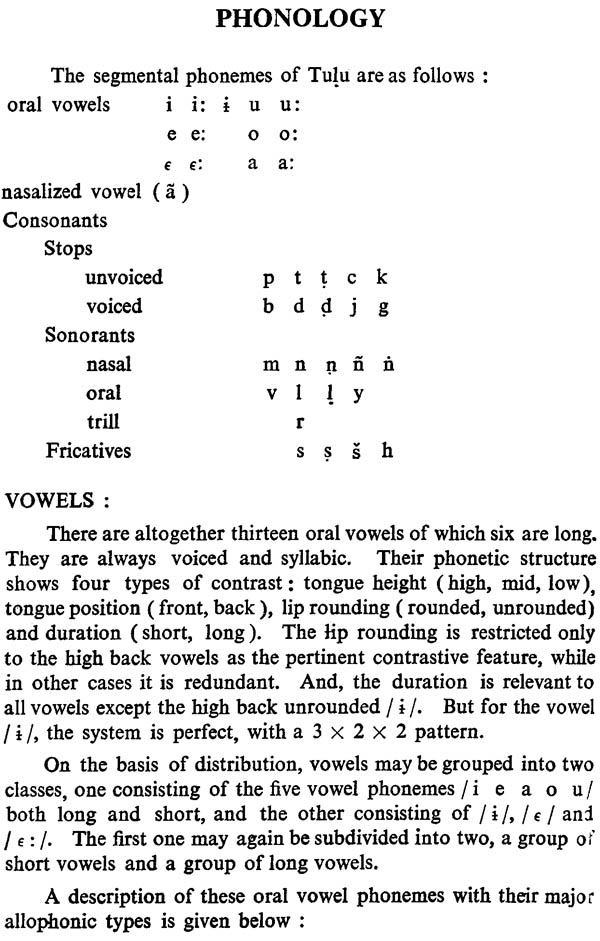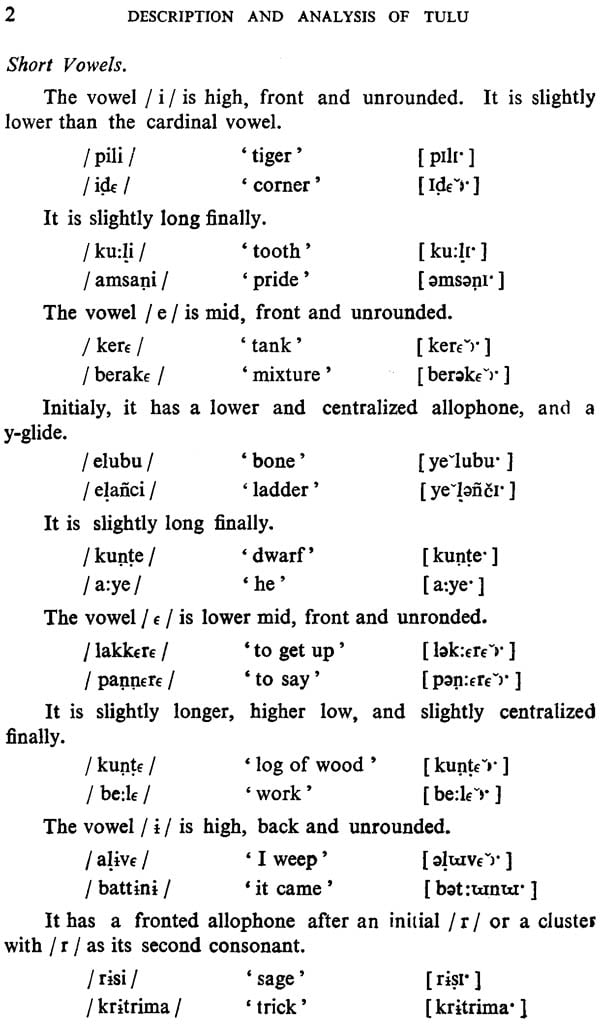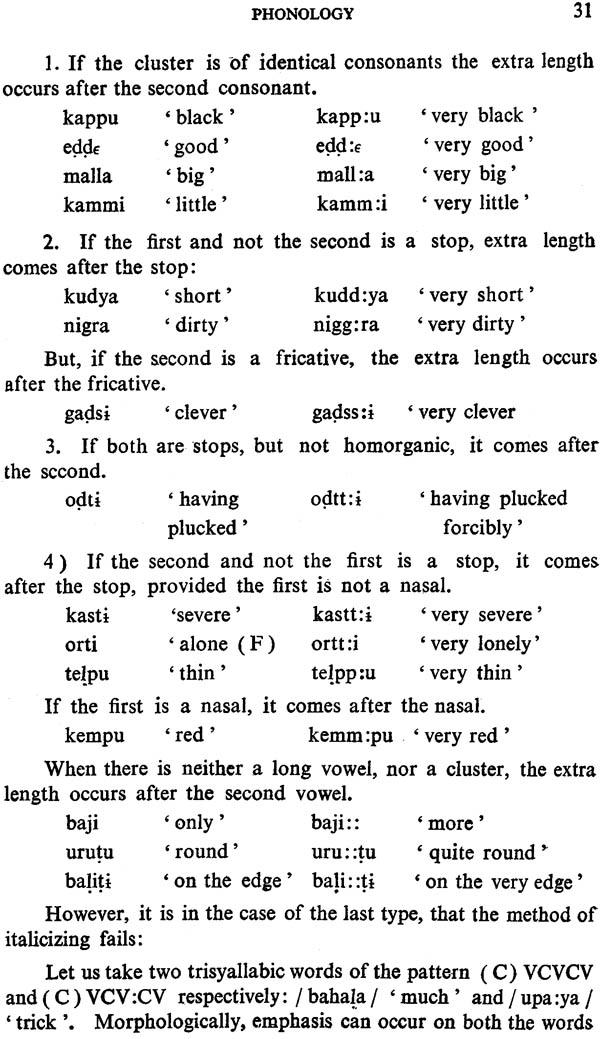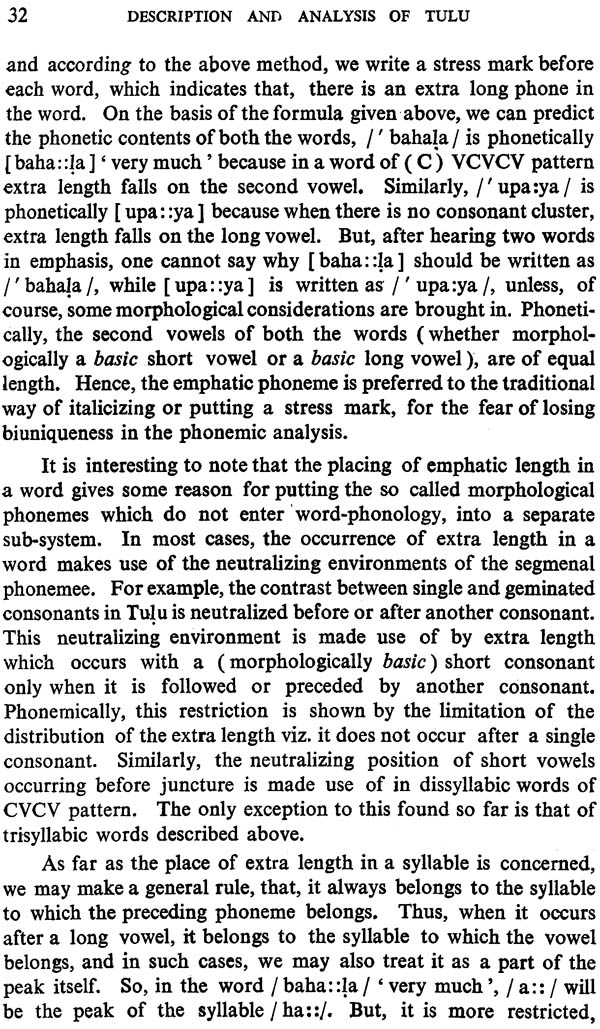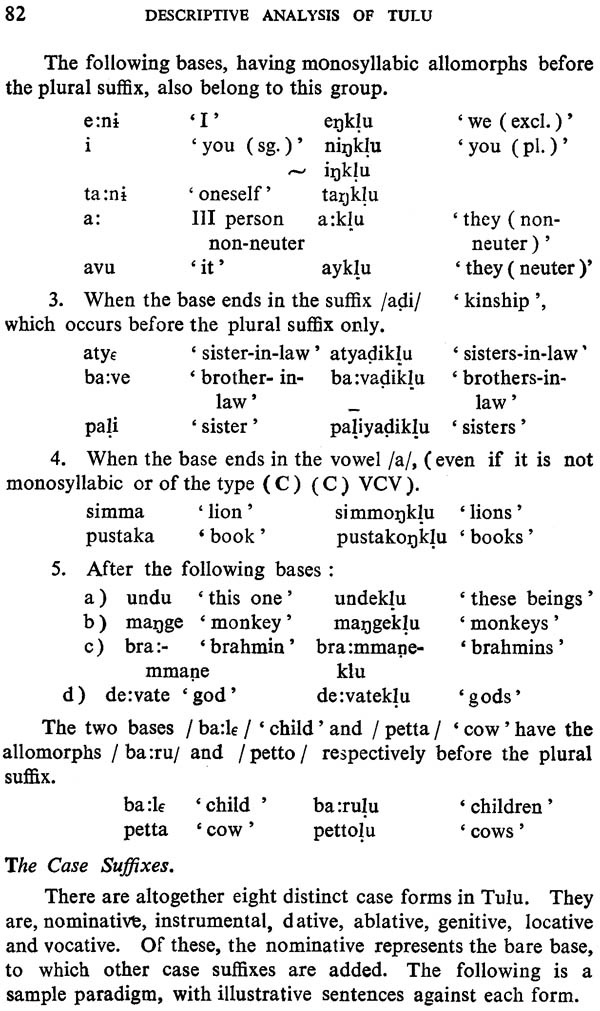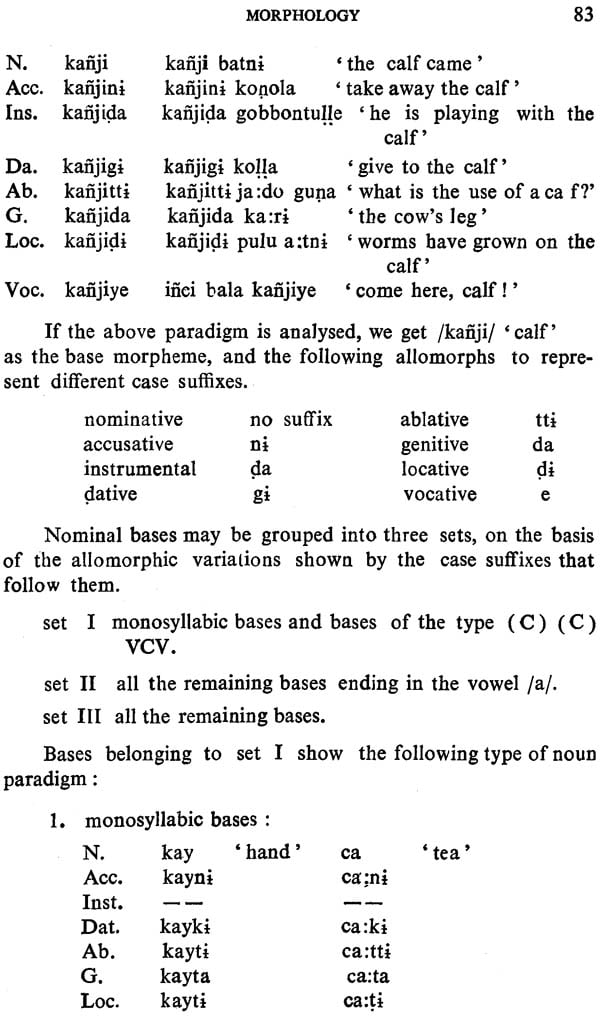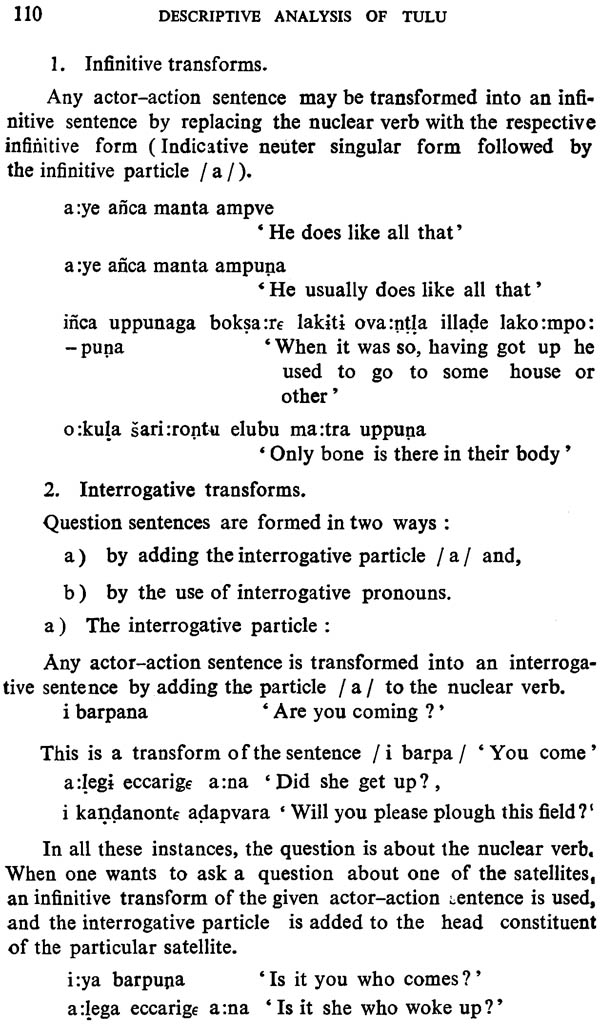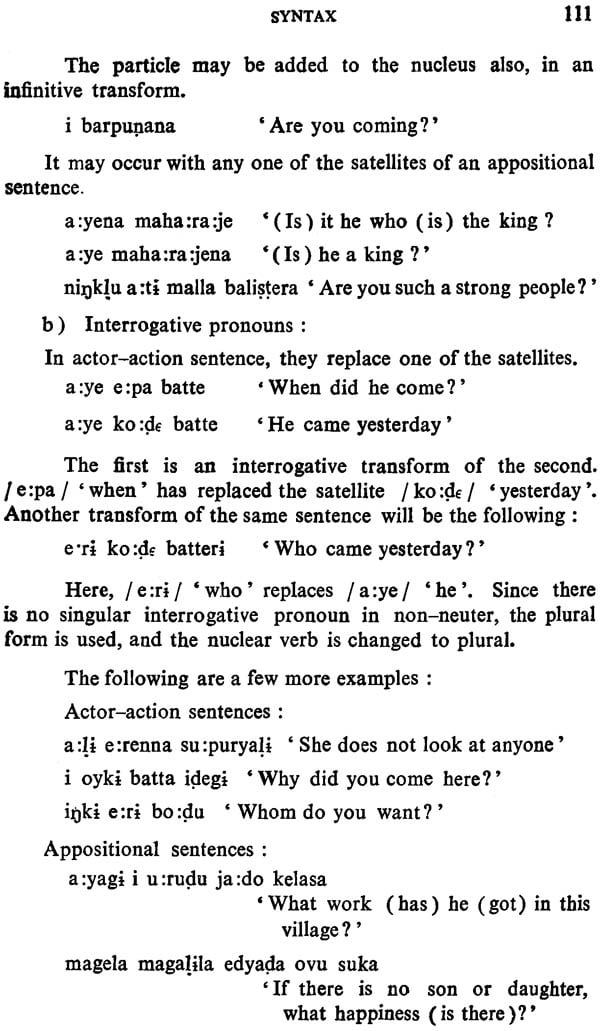
Descriptive Analysis of Tulu (An Old and Rare Book)
Book Specification
| Item Code: | NAM050 |
| Author: | D. N. Shankara Bhat |
| Publisher: | Deccan College Postgraduate and Research Institute |
| Language: | English |
| Edition: | 1967 |
| Pages: | 132 |
| Cover: | Paperback |
| Other Details | 8.5 inch x 5.5 inch |
| Weight | 140 gm |
Book Description
On the 15th of October 1964 the Deccan College celebrates the centenary of its main Building, and curiously enough this period coincides with the Silver Jubilee of the Postgraduate and Research Institute which, as successor to the Deccan College, started functioning from 17th August 1939 when members of the teaching faculty reported for duty. When I suggested to members of our faculty the novel idea that the centenary should be celebrated by the publication of a hundred monographs representing the research carried on under the auspices of the Deccan College in its several departments they readily accepted the suggestion. These contributions are from present and past faculty members and research scholars of the Deccan College, giving a cross-section of the manifold research that it has sponsored during the past twenty-five years. From small beginnings in 1939 the Deccan College has now grown into a well developed and developed Research Institute and become a national centre in so far as Linguistics, Archaeology and Ancient Indian History, and Anthropology and Sociology are concerned. Its international status is attested by the location of the Indian Institute of German Studies (jointly sponsored by Deccan College and the Goethe Institute of Munich), the American Institute of Indian Studies and a Branch of the Ecole Francaise d’Extreme-Orient in the campus of the Deccan College. The century of monographs not only symbolises the centenary of the original building and the silver jubilee of the Research Institute, but also the new spirit of critical enquiry and the promise of more to come.
Tulu is a Dravidian language spoken in southern India by nearly a million individuals inhabiting the coastal part of Mysore (South Kanara) and also the northern tip of Kerala (Kasaragod Taluk). It is also known as a subsidiary language to more than two thousand individuals of this area, according to the 1961 census. Though no extensive literature has been cultivated in Tulu, its speakers are are well-informed and civilized. Tulu holds a prominent position in the study of Comparative Dravidian for a number of reasons.
The language has split itself into a number of social as well as geographical dialects, sharply distinguished from one another, some of which have almost lost their mutual intelligibility. The present study is based on one of them only, namely the upper class dialect (Brahmins’) of the north (Udupi). The material comes mainly from Mr. M. A. Bhatta, Siromani, of Elluru. Additional material was obtained from Messrs. A. S. Achar, M. A. and P. S. Tantri, M.A. only the grammatical analysis is presented here, while an etymological dictionary is under preparation.
I wish to express here, my sincere gratitude to Dr. A. M. Ghatage, my research guide, to my informants, especially to Sri M.A. Bhatta and to Doctors S. M. Katre, H.S. Biligiri and N.G. Kalelkar for their help and encouragement.
| Foreword | v |
| Errata | vii |
| Preface | ix |
| Phonology | 1 |
| Vowels | 1 |
| Consonants | 6 |
| Chart of Contrasting Items | 13 |
| Clusters | 16 |
| Syllable | 26 |
| Extra length | 28 |
| Juncture | 33 |
| Terminal Contours | 33 |
| Morphophonemics | 35 |
| Elision | 35 |
| Insertion | 39 |
| Assimilation | 40 |
| Other Changes | 41 |
| Morphology | 44 |
| Verb | 45 |
| Transitive | 47 |
| Causative | 48 |
| Reflexive | 50 |
| Completive | 51 |
| Inflexion | 52 |
| Sample paradigm | 55 |
| Indicative | 57 |
| Subjunctive | 61 |
| Negative | 62 |
| Imperative | 63 |
| Concessive | 65 |
| Prospective | 65 |
| Assertive | 65 |
| Participle | 66 |
| Converb | 67 |
| Modals | 68 |
| Pronouns | 77 |
| Numerals | 79 |
| Plural suffix | 81 |
| Case suffixes | 82 |
| Syntax | 90 |
| Satellites | 91 |
| Nominal | 91 |
| Indeclinable | 93 |
| Conditional | 94 |
| Converbal | 94 |
| Naga | 95 |
| Kka | 95 |
| e | 96 |
| Nt | 96 |
| Occurrence | 97 |
| Attributes | 99 |
| Syntactic linkage | 105 |
| Class Cleavage | 107 |
| Sentence transforms | 109 |
| Infinitive | 110 |
| Interrogative | 110 |
| Emphatic | 112 |
| Sample text with analysis | 114 |
| Bibliography | 119 |
